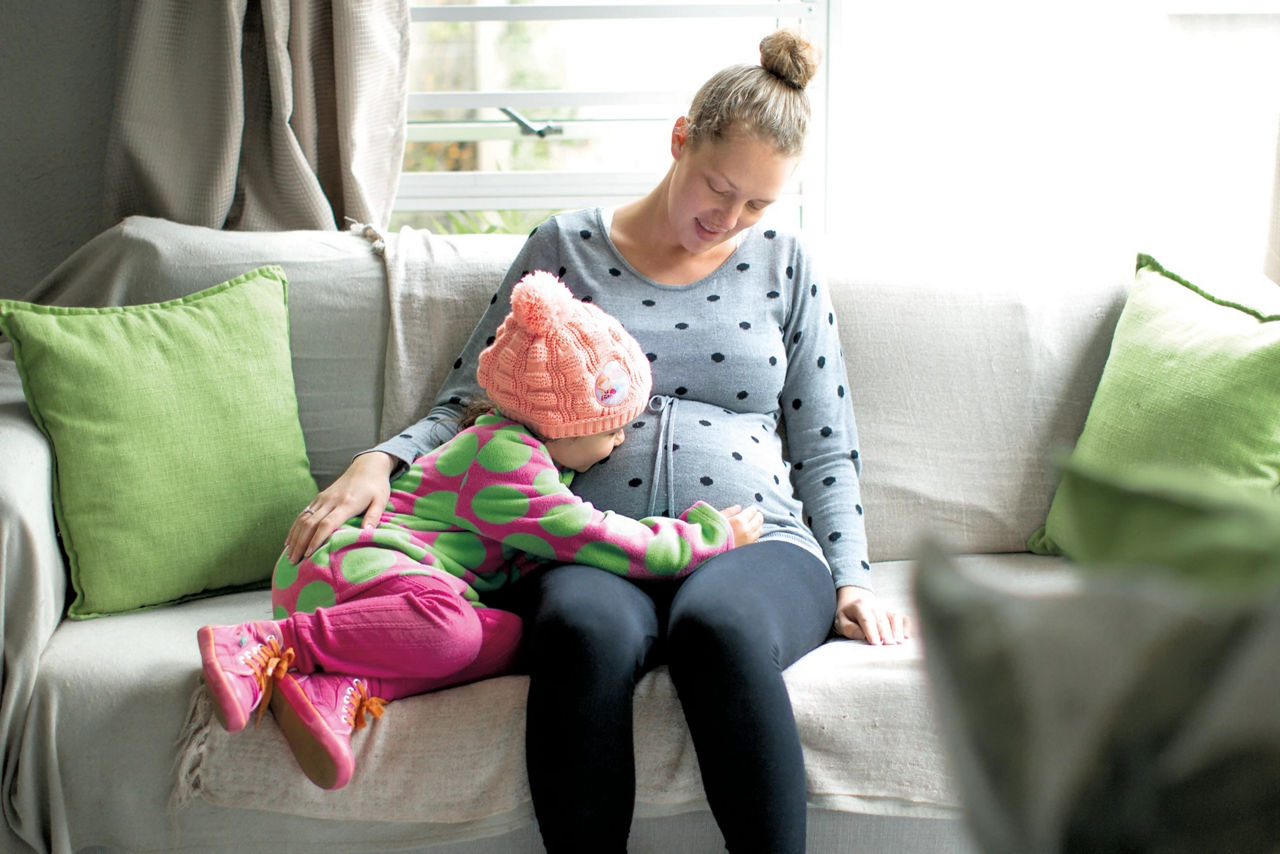Free weaning plan - Register here
Why are my partner’s emotions changing?
During pregnancy, your partner is likely to be experiencing a number of different emotions and feelings. Pregnancy is a big life change, not to mention that it’s no mean feat physically. At times, your partner might feel overwhelmed and exhausted, particularly if she’s experiencing some of the common pregnancy symptoms.
Pregnancy hormones affect people differently. Your partner might be brimming with excitement about having a baby one day and then feeling anxious and insecure the next. Emotionally, pregnancy can be quite the rollercoaster.
Bear in mind that your partner’s feelings are real and should never be ignored or dismissed as just ‘hormones’. You need to be someone your partner can talk to and rely on if they need to-it's that simple.
What can I do to help?
While your partner may well ask for your support during pregnancy, don’t assume that she wants or needs your advice.
If you’re not sure about what your partner may need, ask. Have open conversations about the support they’d like and how you can help if they start to feel that things are getting tough.
This might involve going with your partner to antenatal classes and medical appointments or playing an active role in preparing for your baby’s arrival. Ultimately, just being there for your partner when they need you is often more than enough.
Work together with your partner
As we’ve said before, pregnancy emotions are real. It’s possible that your partner has some real fears about her pregnancy and what life will look like once the baby arrives. After all, it’s a significant change.
When it comes to supporting your partner, listening is key. Whilst it might be challenging to keep up with your partners' changing emotions, you should try and work through any issues or concerns together.
Make time to talk to one another and check in about how you’re feeling. It might also be a good idea to set aside some time for you to do something fun and relaxing together, no matter how lo-key.

What to do if you’re worried about your partner
If you’re worried about your partner during pregnancy, talk to her about it. Ask her opinion on whether she thinks there’s any merit in talking things through with her midwife or GP. If she’s worried about doing so, make sure you reassure her that there’s nothing wrong with seeking support and that you’ll be there for her.
In some circumstances, it might be that your partner needs some additional support around how she’s feeling during pregnancy. Signs to look out for include1:
- Feeling sad a lot of the time.
- Obsessive thoughts and compulsive behaviour.
- Flashback or nightmares.
Being aware of the signs and where to get support will help you deal with any concerns and seek help if you need it, sooner rather than later.
Remember that there’s lots of support out there for both you and your partner if you’ve got concerns. The NHS website lists several organisations you can contact if you need to talk things through. You can find the details here.
- National Health Service. Mental Health in Pregnancy [online] 2021. Available at: https://www.nhs.uk/pregnancy/keeping-well/mental-health/. Accessed May 2022.
Need free advice with a smile? Get in touch with our dedicated Care team.
Ask us a question (8am - 8pm Monday to Friday, 10am - 4pm Weekends)
Messenger
Contact us on Facebook ( 10am–10pm Mon–Sat, 10am–5:30pm Sun)
Call us
Call us on 0800 977 8880 (8am - 8pm Monday to Friday)
FAQs
Get answers to your most frequently asked questions

Join our baby club
Ready to stop worrying about what other people think and do what feels right to you? We’ll give you the support you need to follow your instincts and enjoy parenthood to the max:
Helpful emails
Non-judgemental support
Free weaning plan
Tips from real parents





